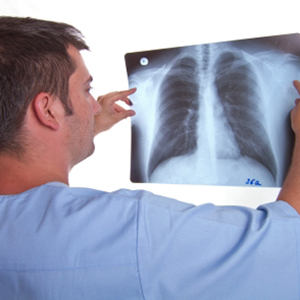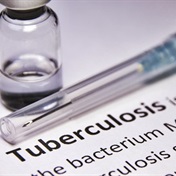
The World Health Organisation and the Global Fund to Fight Aids, TB and Malaria said that an extra $1.6 billion a year was needed to bolster the battle by lifting the overall total to $4.8 billion.
"We are treading water at a time when we desperately need to scale up our response," said WHO director-general Margaret Chan.
Global Fund head Mark Dybul also said a funding hike was essential to help identify all new cases of tuberculosis, while simultaneously making progress against existing cases.
Raising funding important to control the disease
"It is critical that we raise the funding that is urgently needed to control this disease," said Dybul.
"If we don't act now, our costs could skyrocket. It is invest now or pay forever," he added.
Tuberculosis (TB) claims 1.4 million lives every year, making it a top global killer after Aids. It is estimated to infect around 8.7 million people worldwide annually, though only 60% of cases are detected.
Africa is hardest-hit, with TB usually going hand in hand with Aids, but Eastern Europe is also a major concern.
Around one-third of the world's population is believed to be infected with the tuberculosis pathogen, though that does not mean they will get sick or are infectious.
"The huge majority will never have any problem," Oliver Moldenhauer of aid group Doctors Without Borders told AFP.
The risk of falling ill and passing on the disease rises substantially if an individual is already ill, is poor, uses drugs, or lives in a TB hotbed.
TB most hit marginalised population
The fact that TB mostly hits marginalised population groups means it has an "image problem" which keeps it out of the spotlight, said Moldenhauer.
Dybul pointed to weak "political commitment" to fight it among governments, notably in the former Soviet bloc.
Multidrug-resistant tuberculosis - known in medical jargon as MDR-TB - is thought to account for almost four percent of new TB cases and an estimated 630 000 people are believed to have it.
"Drug-resistant TB is notoriously difficult to diagnose and extremely difficult and costly to treat," said Chan, adding that the world was sitting on a "powder keg".
MDR-TB is blamed on poor quality treatment of the conventional strain - for example, when patients halt their medication too soon.
After emerging in a handful of nations, it has spread to around 80, though 60% of cases are in Brazil, China, Russia and South Africa.
The WHO agency declared TB a global health emergency in 1993.
"On many levels, TB control is a success story," Chan said, pointing to major treatment campaigns which slashed mortality rates by 41%.
"The epidemic which in 1993 looked set to spiral out of control peaked 10 years on and began a slow but steady decline. But despite successes in shrinking the epidemic, the global scale remains enormous," she said.




 Publications
Publications
 Partners
Partners











